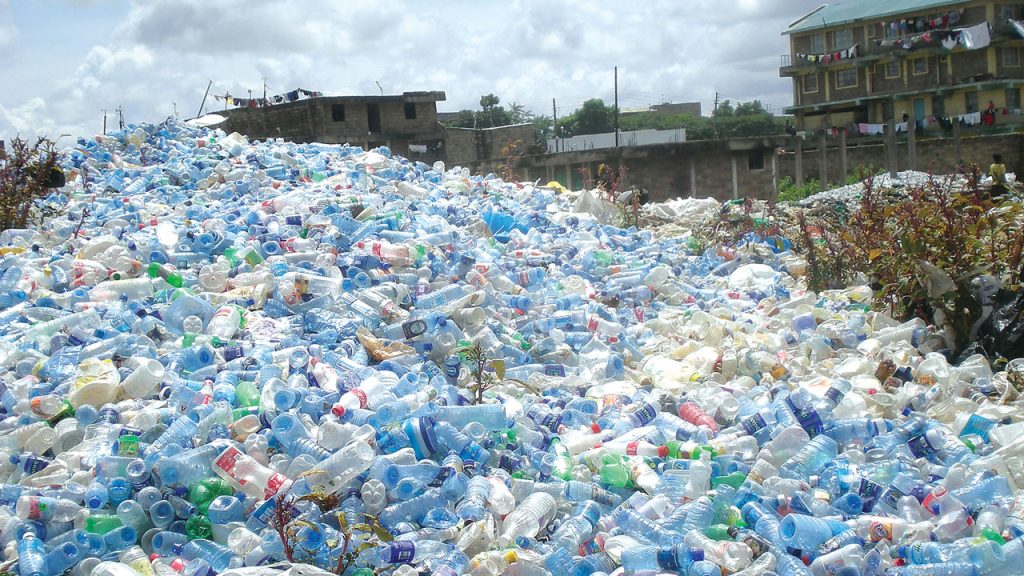
Ongoing Challenges in Enforcing the Single-Use Plastics Ban in Lagos
The enforcement of the ban on single-use plastics (SUPs) that are less than 40 microns thick has been underway for several days, yet confusion persists across Lagos. Despite the Lagos State government’s firm stance, many residents, traders, and business owners directly affected by the policy remain reluctant or unwilling to comply with the new regulations.
From bustling markets to shopping malls, the banned items—carrier bags, Styrofoam containers, disposable cups, straws, and plastic cutlery—are still widely used. Many traders either defy the policy or lack awareness about the restrictions, continuing to sell and package products using these materials. This highlights a growing gap between the policy and its practical implementation.
Public Resistance and Limited Awareness
Mrs. Susan Jacob, a trader and business owner in Ikosi-Ketu, shared her concerns with Weekend Lagos. She noted that while the use of Styrofoam has slightly decreased, many traders remain unaware that other items such as straws, plastic cups, and light nylon bags are also banned.
“Stockpiling of Styrofoam has reduced, but traders are still using other banned items. Many don’t even know they’re outlawed. Malls and eateries still use them,” she said. She added that disposing of already purchased stock is economically unfeasible.
In Ikeja’s Ipodo Market, Mrs. Eteko Precious echoed similar frustrations. “Even for small purchases like bread, customers expect a nylon bag. It’s not easy to stop using them unless there’s an alternative,” she said.
Investigations by Saturday Tribune confirmed widespread non-compliance in markets and eateries, with most still using disposable items as though the ban didn’t exist.
Cost Burden Shifted to Consumers
A new trend is emerging in major retail outlets like Shoprite and Bokku, where customers are now charged for thicker plastic bags. A shopper revealed that “Shoprite sells a pack of nylon bags for N70,000, and Bokku sells theirs for N100,000.”
Customers now face a dilemma: bring reusable bags or pay exorbitantly for packaging. This shift places additional financial pressure on consumers, who may not have access to affordable alternatives.
Manufacturers Cry Out
The Manufacturers Association of Nigeria (MAN) has called on the state government to reconsider the enforcement, warning of dire economic consequences. MAN’s Director General, Segun Ajayi-Kadir, said the ban could lead to job losses as companies may shut down due to lack of alternatives or demand.
“If manufacturers can’t operate, they can’t pay taxes. That affects government revenue,” he said, adding that the policy lacks a foundation in comprehensive research.
Government Unfazed, Intensifies Crackdown
Despite the backlash, state authorities remain resolute. The Director of Public Affairs at the Lagos State Environmental Sanitation Corps, Mr Lukman Ajayi, confirmed that enforcement began on July 1, starting from Oshodi and Mushin.
“Traders say they stockpiled before the ban. We told them to return the products to manufacturers. The operation is ongoing and won’t stop until Lagos is free of plastic waste,” Ajayi said.
Similarly, KAI Corps Marshal, Major Olatunbosun Cole (Rtd), said enforcement has spread to major markets such as Bolade and Ojuwoye in Oshodi and Alakoro Market in Lagos Island.
“SUPs are polluting our waterways, harming marine life, and clogging our drainage systems, contributing to flooding. The ban is here to stay,” Cole stated.
Pre-Enforcement Engagements
The Commissioner for the Environment and Water Resources, Mr Tokunbo Wahab, emphasized that stakeholders were given ample notice. He recalled that the government issued the initial ban on Styrofoam in January 2024 and granted an 18-month moratorium for manufacturers to phase out SUPs and develop alternatives.
“We held several meetings with stakeholders, including MAN, the Food and Beverage Recycling Alliance (FBRA) and the Restaurant and Food Services Proprietors Association of Nigeria (REFSPAN),” Wahab said. He stated that a final six-month grace period ended on July 1, 2025, yet many manufacturers failed to comply, indicating “they had no intention of doing so.”
'Not a Total Ban on Plastics'
Wahab clarified that the ban does not extend to all plastic products. “We didn’t ban sachet water or PET bottles. Producers can sell the banned items outside Lagos. The goal is to protect lives and the environment,” he said.
He cited global precedents, noting that over 70 countries have introduced similar bans, with some charging for plastic bags. “For clarity. Styrofoam packs were banned for environmental harm, plastic straws for sustainability, and disposable cups and cutlery to reduce pollution. Lightweight nylon bags were banned due to their non-biodegradability,” Wahab said.
He insisted the move would create new green jobs as producers shift to eco-friendly alternatives.
Enforcement Penalties
According to Wahab, any store or market caught storing or selling SUPs under 40 microns will be sealed, with items confiscated and offenders prosecuted under state environmental laws.
Concerns About Regional Coordination
Mr Sumonu Alabi, a resident, expressed concern about enforcement loopholes due to Lagos’ proximity to Ogun State. “If people can buy these items across the border in Sango-Ota and bring them into Lagos, the purpose is defeated. Ogun and other neighbours should have been brought on board first,” Alabi said.
A Call for Alternatives
Mary Adeola, a 35-year-old trader in Alimosho, criticized the state for not providing alternatives. “They should have offered substitutes before the ban. My livelihood is at stake,” she said, reflecting the anxiety of many small business owners.
The Middle Ground?
As government enforcers push harder and affected businesses resist, a growing number of stakeholders are calling for compromise. The ideal solution, they say, is one that balances environmental sustainability with economic survival, ensuring that while the planet is saved, livelihoods are not destroyed in the process.


Posting Komentar